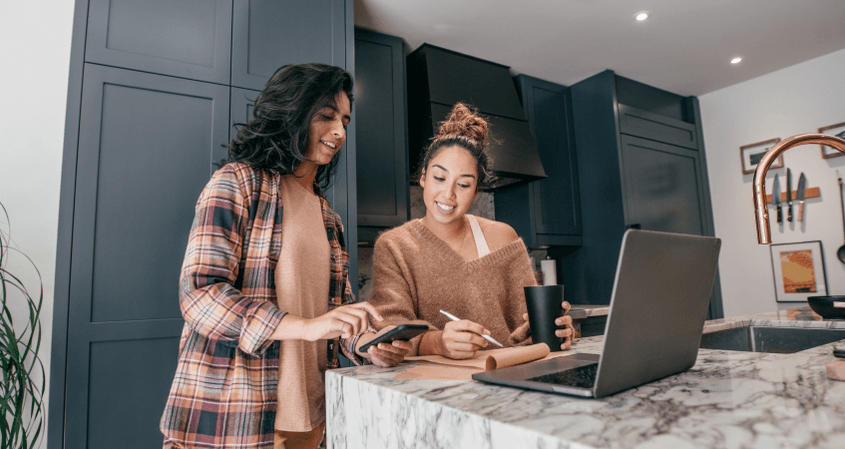Guide to Selling Your Property
We recognise that selling a property can be stressful. Our step-by-step property guide to selling has been designed to take you through the many points for consideration during a sale, from a choice of agent, all the way through to completion.
Choosing an agent
Our guide to selling your property begins by pointing out that this is a process that can take many months which is why it’s important to partner with an estate agent you can trust. You’ll want to know that they have an excellent reputation for marketing your home in its best possible light and negotiating a high offer for you. But it’s also important that your estate agent is just as useful behind the scenes, possessing excellent sales progression skills to keep your move on track.
It’s usually worth receiving property valuations from at least three estate agents. You can read reviews online before you make contact, and you can also ask for recommendations from family and friends who have moved locally in the past few years. Be aware that the estimates you receive may be quite varied. Trust your gut and go with the price and the estate agent that you consider to be the most realistic and the person who you feel the strongest connection with. To gain an understanding of their skills and experience, you can ask questions like:
- What marketing packages are available?
- What rate do they charge?
- What have similar properties sold for in your local area, and when?
- What viewing options are available? For example, accompanied viewings, virtual tours etc.
Choosing your solicitor
As soon as you accept an offer on your home, you will be asked to provide the details of the conveyancing solicitor who will be representing you during your sale. They will prepare the necessary paperwork for you which will be quite extensive, and often requires a decent amount of input from you.
If you’re hoping for things to move quickly, a good tip is to have your solicitor lined up before you reach the offer stage. You can start preparing paperwork such as filling out your fixtures and fittings form, which can save some time.
But if you don’t have a solicitor in mind, how can you choose one? Your estate agents will usually be able to recommend a good local firm they work well with. Of course, there may be a referral relationship in place, so if you feel more comfortable sourcing your own conveyancer, you can also ask your own network for tips or check out local reviews. Some top questions to ask a prospective conveyancer are:
- Are you approved by my mortgage lender?
- How much are your rates and when are these payable?
- What will the charge be if the sale falls through?
- Who will personally be in charge of my case?
Viewings
When selling your home, you’ll want it to look fantastic both internally and externally before you welcome prospective buyers to your door. Staging your home is incredibly effective but doesn’t need to be expensive.
This usually means putting in the necessary preparations to declutter your home, depersonalising it so the buyer can imagine themselves living there, and sprucing up the interior by giving it a lick of paint or fixing anything obviously broken like kitchen cupboard doors. The same goes for the exterior of your home, particularly as some prospective buyers will conduct a drive-by viewing before making an appointment to visit in person. Make sure your front lawn is neat and that your fence posts are freshly painted.
When you’re ready to accept viewings, it’s normally best for the estate agent to host these for you to take the pressure off the buyer. Try to set aside plenty of availability in your schedule for these, especially at the weekends. The more viewings you can accommodate, the less time it will take to get an offer.
Offers
When the offers start to roll in, this is the most exciting part of the process. Have a firm idea of the price you’re willing to accept and how much you might need to fund your next property purchase. If you’re not sure, then consult a mortgage broker before accepting an offer to give you a clear idea of the numbers.
If you receive a low offer, then your estate agent will negotiate on your behalf to try and obtain a better deal. If you have a range of offers, then depend on your estate agent to provide background details, including information about the buyer’s individual property chains. A ‘best and final’ offer stage can be used when there is significant interest, and you want to make a decision.
Conveyancing
Once you have accepted an offer, you can turn your attention to your next home. If you’re renting or moving in with someone else, then this will be more straightforward. But in many cases, property sellers also become property buyers to create a chain. Once you have had an offer accepted on a new home, your chosen conveyancer will work in tandem on both your sale and purchase. They will conduct conveyancing searches, so you understand the legalities of the property you’re buying and the land it sits on.
Exchange and Completion
After weeks of liaising between vendors, buyers, conveyancers and estate agents along the property chain, it will be time to exchange the contracts. The sale of your property, and your purchase of a new home, will not be binding until these contracts have been exchanged meaning that anyone could pull out at any time. At the point of exchange, all parties will also agree on a completion date which is typically moving day. This is the day where the monies will be transferred from buyer to vendor throughout the entire property chain. It can be a lengthy process but at this stage you will hand over the keys to your property’s new owners.
We hope you have enjoyed our home sellers guide, but if you have any questions or would like to book a valuation, please contact your local Balgores branch today.

Why Sell Through Balgores
We always strive to obtain the very best price for your property. Of the many important things to consider when selling your home, setting the right price is vital to the success of your sale.
Learn more